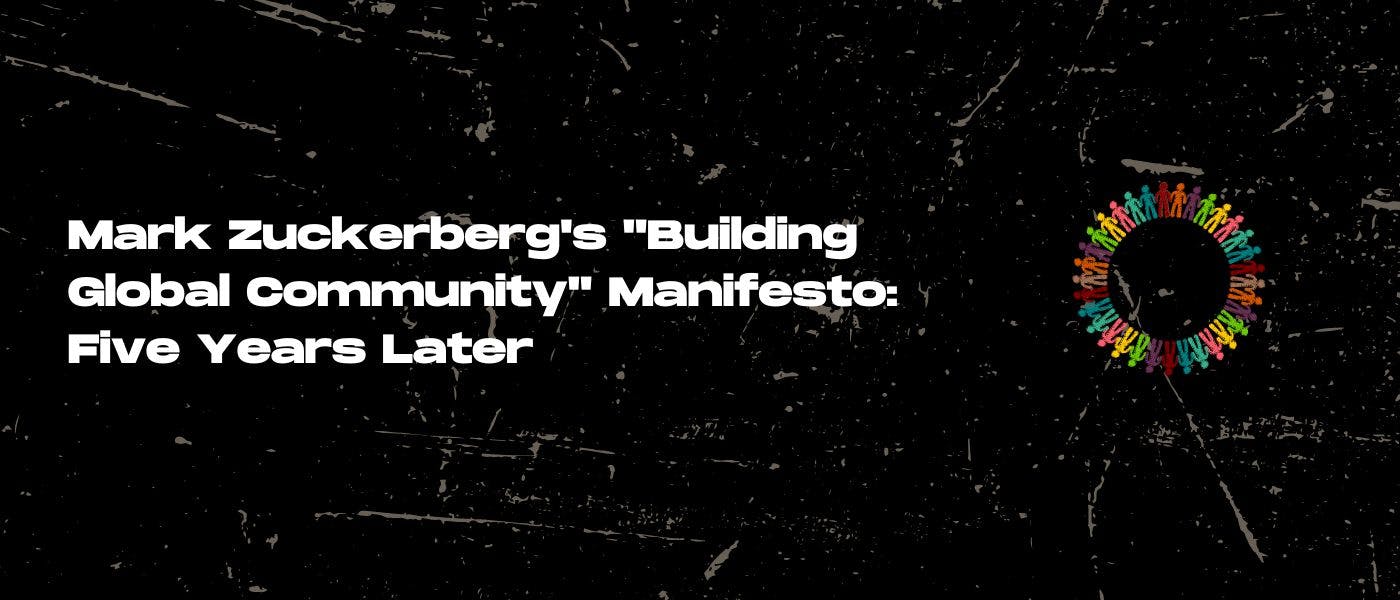1,212 reads
Mark Zuckerberg's "Building Global Community" Manifesto: Five Years Later
by
January 13th, 2023
Audio Presented by
AI technical writer, web3, cryptocurrency, gaming & historical article.
Story's Credibility

About Author
AI technical writer, web3, cryptocurrency, gaming & historical article.
